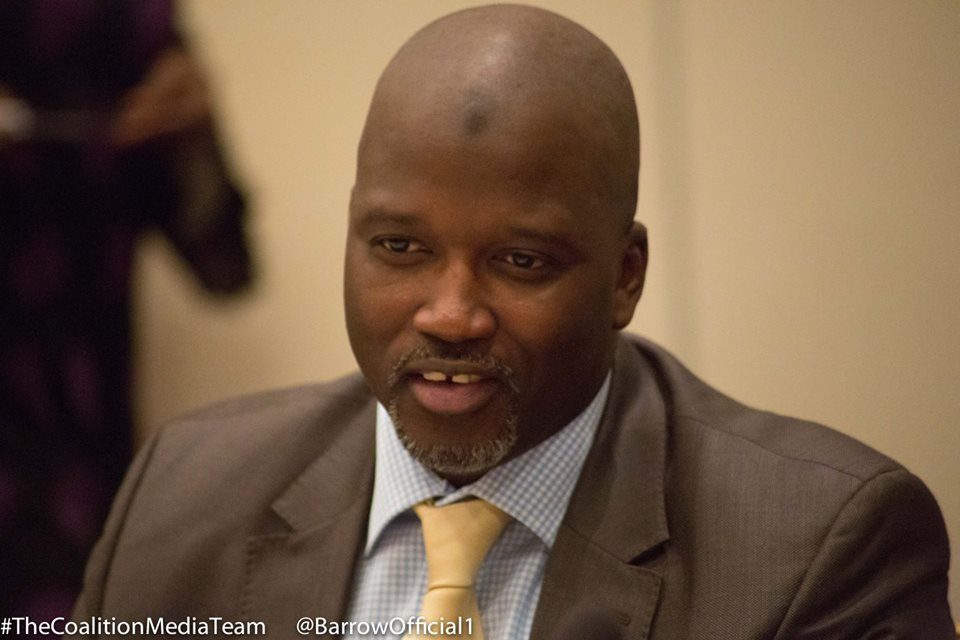By Mustapha Jarju
Hon Abdoulie Jobe, Minister of Petroleum and Energy has disclosed that members of the pricing committee meet every month to set the price of fuel in the country while price determination is (done) in consultation with the OMCs to make sure they are in tangent.
Members of the pricing committee include the Ministry of Petroleum, GIEPA, GRA, and PURA.
In an interview with this reporter at the Kombo Beach Hotel, Kotu last Thursday, the Minister expressed that the subsequent increment in fuel price is a reality of the sector that was in the past, saying they have been able to iron out those differences through policy decisions and consultations with relevant stakeholders.
He explained that “most recently the price of fuel has gone down which shows that the government is very responsible when prices go up, they (the government) compared prices (in the country) to the international prices and when the prices go down they reduce the price.”
Petroleum Minister continued that, in the past two months the petroleum products have been reduced to an average price of about D2 to D3 per liter and this February when the fuel price went higher than the last month the government maintained the last month’s price, “just to ensure that it doesn’t cost any burden to the general public.”
He went on that they engaged the operators in the market to make sure that the areas where there are differences in terms of the pricing structure trader premium and importer margin as well as the foreign exchange rate used in the pricing structure become a matter of the past in the country.
Minister Jobe said, fuel importers are given a license by the government, and wherever there is a possible suggestion brought forward to the attention of the government from the OMCs the government listens and aligns policies in line with realities on the ground.
“We are trying our level best and we will continue to do so,” the Minister assures.
Meanwhile, he said price increment of fuel is based on the realities of the international market because the Gambia only import fuel into the country, and the price is determined by the international market price as a result when the price in the international market increase it has an impact on the fuel pricing in the country too.
The government does not import products; this (fuel) is imported by the players in the market the traders as well as the importers. He added “There is already a strengthened relationship between the oil marketing companies that are here and the importers and the traders and that’s the reason why the traders have the confidence to bring products this year (2023) because of the conducive relationship they have with the government,”





